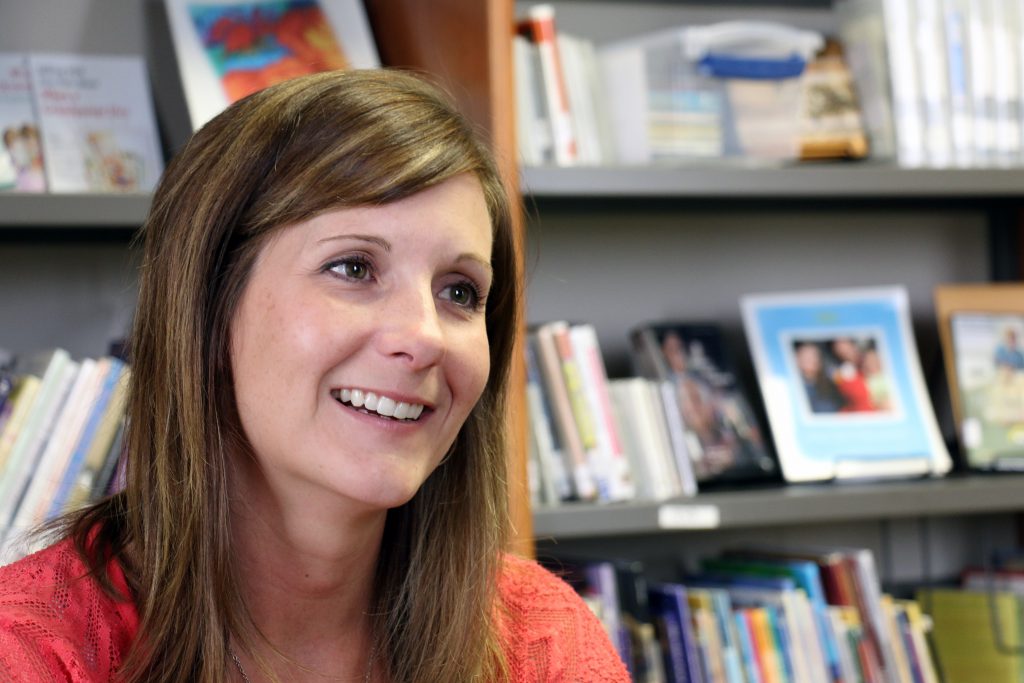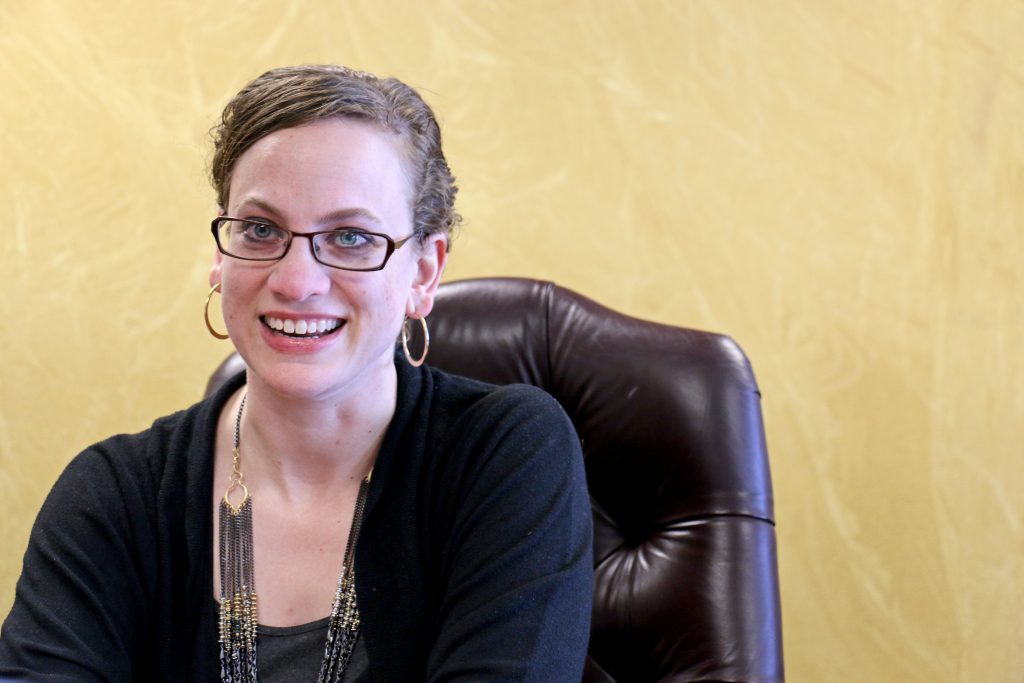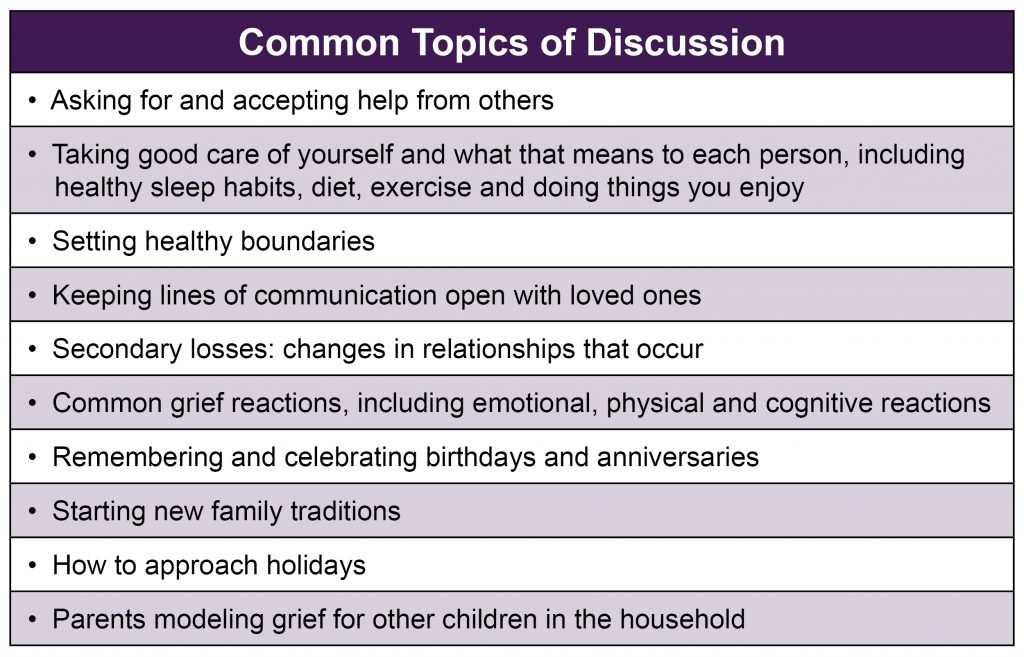Losing anyone you love is extremely difficult, but it is especially devastating and overwhelming when faced with the loss of a baby. Whether the loss occurs during pregnancy, or after the baby is born, parents and loved ones lose not only the precious little one, but also their hopes and dreams for the future. Such a loss can forever change the lives and relationships of those affected.
According to the March of Dimes, about 15-25% of known pregnancies will end in a miscarriage, and studies show that number is likely closer to 50% because often the loss can happen before a woman even knows she is pregnant. No matter how common this experience may seem, each loss is unique and met with its own emotional impact, uncertain future and societal expectations.
Accepting support and talking with those who have experienced a similar loss can ease the isolation felt during this time and also help with the grieving and healing processes. This year, Hospice of the Red River Valley began offering pregnancy and infant loss support groups in the Fargo and Detroit Lakes communities.
Both support groups are facilitated by an individual who has experienced the loss of a baby. While each experience is different, both Heather, Hospice of the Red River Valley bereavement specialist, and Val Kleppen, co-founder of Harlynn’s Heart, offer much needed support and insight to grieving parents.
Living Through the Loss
Heather’s Story
Heather facilitates the pregnancy and infant loss support group, in partnership with Essentia Health, in Detroit Lakes. For Heather, this topic strikes a deeply personal cord, as she and her husband experienced the loss of two babies in consecutive years, 2010 and 2011. Although each circumstance was so different, both losses left the couple with a tremendous amount of grief.
With their first baby, Reese, the couple discovered he had a severe heart defect at the 20-week ultrasound, and they were given three choices: terminate the pregnancy, take him home and keep him comfortable after he was born or attempt palliative-type surgeries. After many opinions with other doctors and much research, they decided to take Reese home with the help of Hospice of the Red River Valley.
“For my husband and me, hospice care meant feeling empowered to take our infant son home to care for and love him through his final days,” Heather said. “By involving Hospice, we were able to prioritize how we wanted to spend his precious days here with us. I don’t think there would have been any other way. It was the right way for us, and it allowed us to feel like a family for a short time, which was a blessing.”

The year following Reese’s passing, Heather became pregnant with a baby girl, Hudsyn, who passed away in utero from complications made by a knot in the umbilical cord. “It was an unreal time for our family. It’s pretty hard to put it into words,” she shared. “We began with the hopes of starting a family and were left with shattered dreams and compounded grief. We were parents by definition, but we had no living children to care for, nurture and love. It was the ultimate heartbreak.”
One resource Heather found helpful was one-on-one bereavement support available through Hospice of the Red River Valley since her son was cared for by Hospice. Because both losses were so close together, she had an established relationship with Hospice staff. “I found it comforting, just knowing we had somebody to go to if we needed to, said explained. “The informational resources were good, and the fact that the Hospice staff acknowledged the death of our second baby, really stood out to me.”
Val’s Story
Val from Harlynn’s Heart works in collaboration with Hospice of the Red River Valley staff to facilitate the support group held in Fargo. Val shares the loss of her beloved baby daughter, Harlynn, at 37 weeks of pregnancy. With no previous indication there was an issue, Val and her husband found out Harlynn’s heart no longer had a beat after Val began laboring. Despite complete shock and disbelief of the loss of her baby, Val delivered Harlynn in April 2013.
“I just remember the room being totally silent,” Val shared. “We went from normal parents to the most traumatic thing to ever happen to us, to having to plan our baby’s funeral. We went home with a half-empty box that had a book, some pamphlets and poems, a lock of her hair and an imprint of her foot. That was it.”
During this time, Val recalls not having very many places to look for support aside from online resources. “I still looked very pregnant and was in a lot of pain. We went home, and we had nothing,” she said. It was the support of friends, family and a local photographer, Michelle Warren, who provided Val the most comfort during this delicate time. “When you have a trauma like this, you have so many mini traumas that follow,” Val explained.

Through the relationship she built with Michelle after the loss of her daughter, they created Harlynn’s Heart, an organization that helps families who have experienced perinatal or neonatal loss, in honor of Harlynn. Val also became a certified bereavement doula to be available for bedside assistance.
Her first call with the organization was a woman who delivered a stillborn daughter at 36 weeks. “Answering her questions and seeing the wave of relief on her face was just so affirming to me. That just confirmed for me that this is absolutely exactly what I should be doing,” Val shared. “I didn’t have that. I really didn’t know that I could ask questions. Fast forward three years, and we’ve helped dozens of local families at the bedside.”
Support for Grieving Parents
The pregnancy and infant loss support group is for anyone who has experienced the death of a baby through pregnancy loss, stillbirth or in the first year of life. The purpose of the group is to provide compassionate grief support, understanding and resources to bereaved parents while allowing them to share their grief in a safe place with others who have experienced a similar journey.
Each group session opens with setting expectations and boundaries to offer a reminder to attendees that everyone’s situation is unique, and the circumstances of one is not more or less difficult than someone else’s story. “The group as a whole values life, so we don’t necessarily look at it as how early or late the loss occurred in your personal journey,” Heather said. “A loss is a loss. You can’t compare or assume.”
During group, Heather and Val share a little of their own grief journeys to empower others to be open. They offer validation and reassurance that wherever people are in their grief, it is OK, and the loss of their child is not their fault. “However many times you have to say it until you believe it, keep saying it, it’s not your fault,” Val said. “We are very logical beings, and there is a cause and effect. The natural thing to do is blame yourself. I still remember so much of what we went through, but now I can see how far I’ve come, and I can offer that encouragement for others.”
“Looking back, I wish we would’ve utilized the support by Hospice more than we did. It’s hard to know what you need in the midst of your darkest day,” Heather explained. “It’s easier now to see what could have been helpful and what was helpful in those initial weeks and months. For me, talking with other mothers who had experienced the death of a baby was a great source of support, hope and healing. This realization, combined with an unmet need for support identified by Essentia St. Mary’s Hospital in Detroit Lakes, lead to the creation of the group in the Lakes area.”
“The support group is not as heavy as one might think. Yes, you’re there because you lost a baby and you are working through it, but you have the commonality with other people. There’s a certain level of trust, and you feel a sense that you can finally be open and free to say what you need. There is a sense of relief,” Val explained. “Not many people will associate Hospice with this stage of loss, but so many people have used Hospice for perinatal loss. I think Hospice does a great job of this. Grief is not experienced in stages, and it’s not a linear process. It’s not even a cyclical process. It’s a mess. You’ll experience different things at different times, or some things at the same time.”

Tips for Helping Grieving Parents
- Sometimes you may not have the right words with grief, and it is OK to say nothing. Sitting in silence with your grieving loved one can be just want he or she needs.
- Grieving parents still want to hear the name of their child and stories about them. They think about their child daily, so it is nice to have other people bring them up in conversation, as well.
- Help plan physical things to help grieving parents remember and celebrate their child, such as planting a tree or plant, decorating their memorial site for birthdays and holidays, etc.
- Don’t ask someone who is grieving: What do you need? or Let me know how I can help. Instead, think of things you can do to help and take action.
- Don’t say: “You should … ” or “You need to … ” Instead, offer the same idea in a suggestive question like, “Have you thought about … ?”
- Never say: “A least … :” At least you have a living child. At least you can get pregnant again, etc.
“There is life after loss, and there is purpose in every life no matter how long or short,” Val said. “When your baby dies, your whole world changes, and it’s a different kind of crazy. You can laugh and cry in the same breath. In the normal world of normal parents, it would be ‘Oh, she’s crying again.’ But it’s not again, it’s just there all the time, and it’s how you get through it. Or when I would laugh at something, it would be, ‘Oh good, she’s feeling better.’ But really it’s just surviving every day.”
Dates, Times and Locations
These ongoing support groups are free and open to community members. For more information, contact us at (800) 237-4629 or email bereavement@hrrv.org.
- Fourth Tuesday of each month from 6:30-8 p.m.
- Hospice of the Red River Valley office (use west door)
- 1701 38th St. S., Fargo
- Third Thursday of each month from 6:30-8 p.m.
- Hospice of the Red River Valley
- 1111 Highway 10, Detroit Lakes
Hospice of the Red River Valley offers many free grief support resources to community members, including support groups for pregnancy and infant loss, widows, men and women and loss of a partner. Each of our uniquely designed groups provides support and practical suggestions for your grief journey. The support groups are open to the public. For more information about grief support resources, visit our website.
About Hospice of the Red River Valley
In 1981, Hospice of the Red River Valley was founded on the belief that everyone deserves access to high-quality end-of-life care. We fulfill our nonprofit mission by providing medical, emotional, personal and spiritual care, as well as grief support to our patients, their families and caregivers during a tender time in life. Our staff helps those we serve experience more meaningful moments through exceptional hospice care, 24 hours a day, 365 days a year, wherever a patient calls home. The organization serves more than 40,000 square miles in North Dakota and Minnesota, including in and around Bismarck, Detroit Lakes, Devils Lake, Fargo, Fergus Falls, Grand Forks, Lisbon, Thief River Falls, Valley City and many more communities. Hospice of the Red River Valley offers round-the-clock availability via phone, prompt response times and same-day admissions, including evenings, weekends and holidays. Contact us anytime at 800-237-4629 or hrrv.org.


